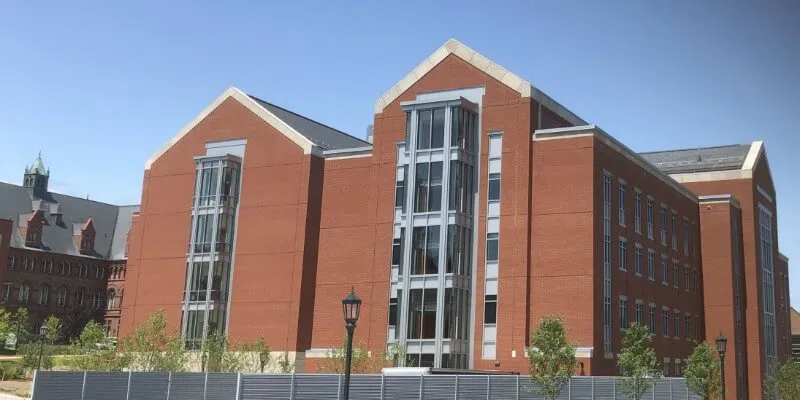Innovation Hall, the second building in UVM’s new STEM complex, will soon house one of the most advanced instruments in science and engineering research today – a Tip-Enhanced nano-Raman Spectroscopy unit (TERS). It’s a microscope so refined it can measure things 10,000 times smaller than the width of a human hair.
The instrument comes to UVM through a recent $400,000 National Science Foundation Grant, with an additional $100,000 in institutional funding. “This opens doors to explore structure-property relationships on a scale never available before,” according Madalina Furis, professor of physics and principle investigator for the grant.
TERS is the second advanced microscope UVM has obtained in the past year. The first, a scanning electron microscope now being assembled in Discovery Hall, was funded through another NSF grant received by Assistant Professor of Physics Matthew White and a team of interdisciplinary scientists and engineers.
“These two instruments together will create a user facility benefiting the entire state of Vermont and beyond,” said Furis. The TERS instrument will be installed sometime next summer.
Seeing the Unseen
The new facility is also a boon to researchers in STEM units across campus. Linda Schadler, dean of the College of Engineering and Mathematics, Appala Raju Badireddy, assistant professor of engineering, and Michael Ruggiero, assistant professor of chemistry, were co-principle investigators.
“This was one of the most highly interdisciplinary grants I’ve ever been a part of,” says Ruggiero, who teaches physical chemistry at UVM. He says researchers across campus are lining up to use the TERS to see the heretofore unseen—engineers and material scientists can observe how polymers bond, and medical researchers can see single proteins and enzymes and how they interact.
“We are able to image very small things, and also get information about how these small things are interacting,” he said. “We’re not able to image things as small as a molecule yet, but we’re getting close.”
The microscope will eventually be incorporated into an advanced two-semester instrumentation Materials Science (MATS) course for graduate and undergraduate students.
